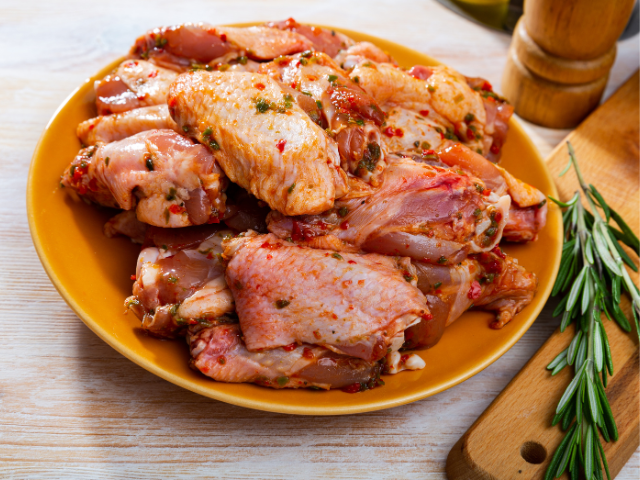When it comes to cooking meat, seasoning is everything.
A well-seasoned steak, chicken, or pork can transform an ordinary meal into something extraordinary.
The good news? Mastering the art of seasoning doesn’t have to be complicated.
With simple tips, you can elevate your culinary skills and impress your family or guests every time.
In this article, we’ll dive into essential seasoning tips for meats that are easy to understand and apply, even for beginners.
Why Seasoning Matters

Seasoning isn’t just about making your food taste salty.
It’s about enhancing the meat’s natural flavors and giving it a delicious edge.
Seasoning also affects the texture, moisture, and tenderness of the meat.
Using the right spices and herbs can bring out the best in each cut of beef, making every bite flavorful and satisfying.
Basic Seasoning Tip: Salt is Your Best Friend
The first rule of seasoning meat is simple: salt is essential. Salt draws out moisture from the meat, which helps create a delicious crust when cooked. It also penetrates the meat, bringing out its natural flavors. Here’s a simple tip to remember:
- Salt generously and early: Season your meat with salt for at least 30 minutes before cooking for the best results. This gives the salt time to work its magic and enhance the flavor.
Don’t be afraid to salt your meat generously; it’s almost impossible to over-salt significant cuts like steak or pork. The key is using coarse or kosher salt, which disperses better than table salt and is less likely to make your meat too salty.
Fresh Herbs vs. Dried Herbs: What’s the Difference?
Fresh and dried herbs can add flavor when seasoning meat, but they behave differently. Dried herbs are more concentrated and should be used in smaller amounts, while fresh herbs offer a lighter, more delicate taste. Use dried herbs during the cooking process and add fresh herbs right before serving to keep the flavors bright and vibrant.
Common Herb Pairings for Meats:
- Chicken: Rosemary, thyme, garlic
- Beef: Oregano, thyme, black pepper
- Pork: Sage, fennel, garlic
Spice Up Your Meat: Common Spices to Use
Now, let’s talk spices. Spices add complexity and depth to your meat, and the options are endless. A simple blend of spices enhances some meats, while others benefit from a more adventurous combination. Here are some common spice suggestions based on different types of meat:
- Beef: Black pepper, paprika, garlic powder, cumin
- Chicken: Paprika, onion powder, garlic powder, turmeric
- Pork: Cumin, coriander, smoked paprika, cinnamon
- Lamb: Cumin, coriander, rosemary, mint
For the best results, start with a salt and pepper base, then add your favorite spices for a personalized flavor profile.
Seasoning Blends: Save Time with Pre-Made Mixes
Seasoning blends are your best friend if you’re short on time or prefer a no-fuss approach. Many pre-made blends are designed for different meats, saving you from guessing which spices go well together.
Pro Tip: Use a store-bought BBQ rub or Cajun seasoning to give your meats a bold, flavorful kick without any extra effort.
Marinating for Extra Flavor

Marinating is another excellent way to season meat. Marinades usually contain oil, acid (like lemon juice or vinegar), and spices. This mixture flavors the meat and tenderizes it, making it juicier and more flavorful.
Basic Marinade Recipe for Any Meat:
- 1/4 cup olive oil
- 2 tablespoons vinegar or lemon juice
- 2 cloves garlic (minced)
- 1 teaspoon salt
- 1 teaspoon black pepper
- A pinch of herbs or spices of your choice (like oregano or paprika)
Let the meat soak in the marinade for at least 30 minutes or, for best results, overnight in the fridge.
Rubs: A Simple Way to Infuse Flavor
A dry rub combines spices and herbs that you rub directly onto the meat. This technique is perfect for adding flavor without the need for marinating. It’s also ideal for meats you’ll be grilling, smoking, or roasting.
Simple Dry Rub Recipe:
- 1 tablespoon salt
- 1 tablespoon black pepper
- 1 tablespoon paprika
- 1 tablespoon garlic powder
- 1 tablespoon onion powder
Pat the rub onto the meat and let it rest for 15-30 minutes before cooking. When cooked, the flavors will absorb into the meat and create a tasty, caramelized crust.
Cooking Methods Matter: Grilling, Roasting, or Pan-Frying
Different cooking methods can also affect how your seasoning interacts with the meat. For example, grilling gives your meat a smoky flavor, while pan-frying locks in moisture. Adjust your seasoning based on how you plan to cook your meat.
- Grilling: Use bold flavors like smoked paprika or chili powder.
- Roasting: Stick to herbs like rosemary or thyme that can withstand long cooking times.
- Pan-Frying: Garlic and onion powders create a rich crust well.
Reminders:
- Season with salt early for best results.
- Use dried herbs while cooking and fresh herbs after.
- Experiment with different spice blends to find your perfect flavor profile.
The Secret to Juicy Meat: Resting
One commonly overlooked step in cooking meat is resting.
After cooking, let your meat rest for about 5 to 10 minutes.
This redistributes the juices, ensuring the meat stays tender and flavorful.
Cutting into the meat too soon will cause the juices to escape, leaving you with dry meat.
Want to Elevate Your Cooking Even More?
To discover more ways to maximize your air fryer or expand your culinary skills, check out the Best Vegetarian Air Fryer Cookbook UK.
It’s filled with easy-to-follow recipes that will help you unlock the full potential of your cooking appliances.
Conclusion
Seasoning meat doesn’t have to be complicated.
By mastering these essential seasoning tips for meat, you can create flavorful, delicious meals that your family will love.
Whether you’re a beginner or a more experienced home cook, these seasoning techniques are simple yet effective.
Remember to experiment with spices, herbs, and marinades to find your signature flavors.
Discover the Best Vegetarian Air Fryer Cookbook UK and enjoy a variety of mouthwatering, easy-to-make recipes that fit perfectly into your healthy lifestyle! Plus, don’t forget to check out our recently published articles for more tips, reviews, and air fryer inspiration.









